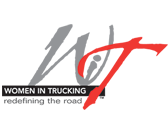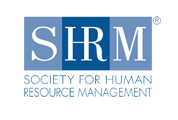Or, the Story of the Genie and the Truck Driver
 A truck driver was tooling down the highway one afternoon when all of a sudden he heard a “pop.” He steered the rig onto the shoulder, got out of his truck, and walked around it to check his tires. Under one of the tires, he saw a bottle. The driver picked it up and wiped off the label, when a very old genie appeared.
A truck driver was tooling down the highway one afternoon when all of a sudden he heard a “pop.” He steered the rig onto the shoulder, got out of his truck, and walked around it to check his tires. Under one of the tires, he saw a bottle. The driver picked it up and wiped off the label, when a very old genie appeared.
The genie said, “Man, I’m too old for this! You get one wish — not three — just one.”
The driver thought long and hard, and finally said, “I would like all of the bridges to be wide enough that oversized loads could get through without any trouble.”
The genie said, “Do you know how many bridges that would be?! Can’t you come up with something simpler?”
The driver replied, “How about if you make the Snowe-Klobuchar Bill fair for everyone?”
The genie shook his head vigorously and answered, “How wide would you like those bridges?”
When it comes to the Snowe-Kolbuchar bill, we know there’s no magic solution to finding the perfect compromise that will satisfy all of the parties in our industry. With the S&K legislation, it will be impossible to please everyone. Seeing as how the logistics field contributes to 8% of our Gross Domestic Product revenue, no wonder all parties cannot be completely satisfied!
The intentions behind the bill are good ones: prevent fraud in the transportation marketplace; target unscrupulous brokers; crack down on unauthorized brokering; and weed out non-peforming bonding companies.
Though we can all agree that the landscape of transportation can be improved and that fraudulent behavior needs to be routed from our industry, everyone has a different interests and diverse ideas on how to arrive at the best solution.
If passed, the bill would:
• Increase the broker bond from $10,000 to $100,000 and expand that bond requirement to freight forwarders.
This is one of the most controversial aspects of the bill. Some feel that this requirement will eliminate many small brokers from the market. In anticipation of the bill’s passage, MatchMaker has recently obtained a $100,000 bond.
It’s important to note that this $100,000 bond is already considered a compromise. Other solutions were proposed such as pro-rating bonds based on the size of brokerage (which does not satisfy the OOIDA); instituting escrow accounts; or requiring even larger bonds up to $500,000.
Bob Voltmann, President and C.E.O. of the TIA, called the increase in bond requirements “inevitable” explaining that the $100,000 bond compromise was in effect the lesser of the evils that have been proposed.
• Ramp up requirements and disclosures for any person or company seeking to obtain broker or freight forwarder authority.
• Mandate annual registration with the Federal Motor Carrier Safety Administration and revoke authority if registration is not kept current.
Annual re- registration will weed out those who are not in compliance with legislation. (Revenue generated from the renewal fees will be dedicated to FMCSA’s oversight and enforcement of broker regulations.) Although small in number, the impact of “churners” on the industry has been significant. These unscrupulous characters enter the market as a short lived brokerage entity with the intent to defraud. They open as one entity and defraud the shipping public by collecting monies from shippers without distributing it to underlying carriers. They then close the operation and re-enter the market as a new entity. The proposed legislation would tie brokerage authority to an individual, allowing regulatory bodies to trace and review the individual’s business record for integrity.
• Require trucking companies who want to arrange freight for another carrier for compensation to have the following: a broker’s or freight forwarder’s license, an appropriate bond, their motor carrier operating authority.
• Establish significant penalties for violations of broker regulations, including unlimited liability on freight charges if conducting brokerage activities without a license or bond.
When a carrier accepts a load and brokers it to another party without authority, the due diligence of the originating broker is circumvented. This creates problems such as loss of tracking control, risk management and double payment liability. Currently, there is no legal recourse in place to prevent carriers from accepting a load and brokering it to another party.
To avoid these problems, Matchmaker currently adheres to standard compliance protocol including but not limited to: getting a signed contract, requesting a certificate of insurance, checking carrier safety ratings and reviewing Watchdog reports. We also personally dispatch drivers and verify that they are employed by the company we hired.
Matchmaker applauds the movement to require a separate registration by motor carriers for brokering of freight and to implement standards for maintaining appropriate insurance.
• Bonding companies will be monitored to ensure the fair and equitable distribution of all monies bonded.
Oversight will ensure claims are paid, that public notification of the need to file a claim is given, and that the system of pro rata distribution for claims is transparent. A $10,000 fine is proposed for non-compliance, which should be a significant motivator for bringing bond company practices in line with public expectations.
Overall, Matchmaker sees the legislation proposed by Senators Olympia J. Snowe (R-Maine) and Amy Klobuchar (D-Minn.) as a step in the right direction. It will help to correct many of the problems in the transportation industry that plague both carriers and brokers alike. The bill reduces the opportunity for fraud and protects the brokerage industry as a noble occupation that provides service to both the shipping and the carrier public.
Yet, as always, the best solution is to know the companies you are dealing with. No bill can guarantee good business principles the way that a company’s history, track record, and integrity can.
For more on the industry debate, we recommend the following article by truckinginfo.com.








